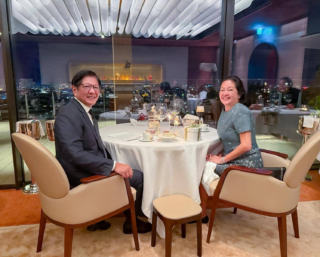On May 2-12, the 16 member-countries of the Regional Comprehensive Economic Partnership (RCEP) met in Manila for their 18th round of negotiations to craft a multilateral trade deal that would affect half of the world’s population. With the demise of the US-led Trans Pacific Partnership, the RCEP, comprising the 10 Asean members and China, Japan, South Korea, India, Australia and New Zealand, now looms as the most significant regional trade bloc to emerge in recent years.
What is unique with the RCEP is the exclusion of the United States, resulting in the de facto leadership exercised by China as the group’s most dominant economic power. It is also a highly conspiratorial and undemocratic gathering, with all 18 rounds of trade discussions held in secret and no reports shared with the public.
But leaked documents reveal the inclusion and strengthening of an Investor State Dispute Settlement (ISDS) mechanism that grants corporations the right to sue governments over perceived threats to their profit-taking goals. ISDS-related hearings are held in clandestine tribunals hidden from the public and outside the authority of national legal structures. It is also a one-way process as only corporations may sue governments, but not the other way around. Decisions are not published and there is no appeal mechanism.
If left unchecked, the ISDS will severely curtail the right of governments to enact and enforce laws that protect consumers, safeguard the environment, mandate greater social protection for marginalized sectors, and increase wages and other benefits of workers and other employees. More crucial, the ISDS, through the RCEP, prevents governments in developing countries from adopting a development agenda that prioritizes national interests over that of foreign corporate greed.
Being an attractive and lucrative option for corporations, the ISDS has now mutated into a “speculative financial asset.” Malaysian economist Jomo Kwame Sundaram, a former United Nations assistant secretary general, reports that ISDS provisions in investment treaties and free trade agreements “have increasingly provided an investment opportunity to make money by speculating on lawsuits, winning huge awards and forcing foreign governments, and taxpayers, to pay.”
Médecins Sans Frontières (MSF)/Doctors Without Borders argue that the RCEP “is set to become one of the gravest threats to affordable treatment for patients worldwide” and will cause a “reverse impact on public health and access to medicines.” Leaked documents point to proposals for the “extension of drug corporations’ patent terms and new monopolies entrenched in the national drug regulatory systems.”
The MSF says this would “lead to a delay in generic competition” and translate into “unsustainable high medicine prices.” If adopted, these antipoor proposals would adversely affect the peoples of most Asean countries and India. On top of increased health costs, the ISDS mechanism would “raise the risks of Asean and India being sued by pharmaceutical corporations for millions of dollars.”
Trade Justice Pilipinas, a coalition of civil society groups, people’s organizations and labor unions, has raised the alarm and called on Asean leaders “to defend the primacy of human rights, environmental integrity and peoples’ welfare against international economic agreements like RCEP that advance … the corporate agenda, and impinge on the ability of the government to advance the greater public interest.” In effect, the RCEP runs counter to the stated vision of a people-centered and people-oriented Asean.
The Asia Pacific Research Network is calling for a new model of regional integration “based on cooperation and solidarity, not on competition and profits; that puts the development needs of the region and its peoples above that of corporations; one that recognizes that economic policy can work only if it is inclusive, … [and] integrates the social and environmental concerns of the world.”
Eduardo C. Tadem, PhD, is president of the Freedom from Debt Coalition, professorial lecturer in Asian studies at the University of the Philippines Diliman, and a member of Trade Justice Pilipinas.


